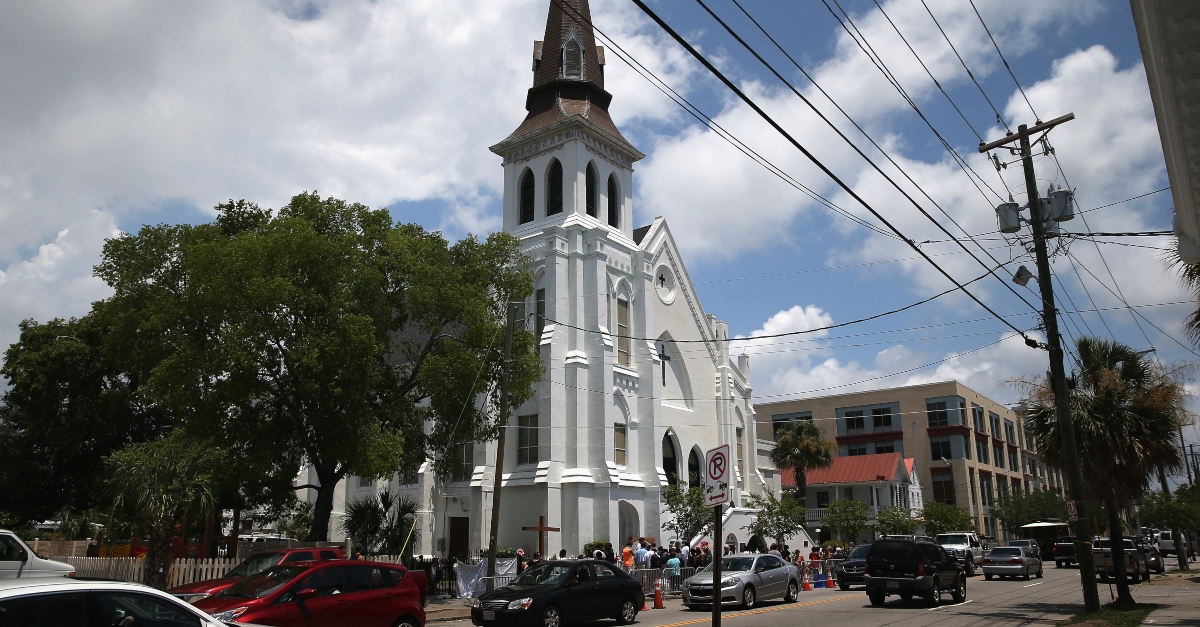
A federal appeals court on Friday brought back a lawsuit by the survivors and victims’ families of the 2015 Emanuel AME shooting in Charleston, South Carolina. Judges with the 4th Circuit ruled that the government didn’t have immunity under the Federal Tort Claims Act, and the Brady Act.
“Because neither provision affords the Government immunity in this case, we reverse the district court’s order granting the Government’s motion to dismiss for lack of subject-matter jurisdiction and remand for further proceedings consistent with this opinion,” wrote Chief Judge Roger Gregory.
Gunman Dylann Roof opened fire at the church on June 17, 2015, killing nine people: pastor and state senator Clementa C. Pinckney, Cynthia Marie Graham Hurd, Susie Jackson, Ethel Lee Lance, Depayne Middleton-Doctor, Tywanza Sanders, Daniel L. Simmons, Sharonda Coleman-Singleton, and Myra Thompson. The shooter, who is white, was motivated by virulent racism. He was convicted in federal court, and pleaded guilty to state charges. The victims were black.
Plaintiffs blame government officials for botching a federal background check when Roof purchased the semiautomatic handgun used in the attack. The ruling pointed out that even officials admitted Roof shouldn’t have been able to get the firearm.
“Dylann Roof, the alleged killer of so many innocent people at the Emanuel AME church, should not have been allowed to purchase the gun he allegedly used that evening,” said then-FBI Director James Comey.
Officials allegedly misidentified the nature of the drug offense that Roof had been recently arrested for, misidentified the wrong jurisdiction, and mishandled the process in sorting out the confusion:
It later became clear that the III database entry provided by the Lexington County Sheriff’s Office was inaccurate in certain crucial respects. Id. First, Roof had been arrested not on a felony cocaine charge but on a misdemeanor charge for simple possession of a Schedule III controlled substance (Suboxone) without a prescription. Id. at 644. Second, and more importantly, the record misidentified the arresting agency as the Lexington County Sheriff’s Office when it was the Columbia Police Department (“Columbia PD”) that had arrested Roof. Id. This misidentification was a product of the fact that Roof was arrested in a part of Columbia, South Carolina, that falls in Lexington County.
Roof was able to get the gun.
The Department of Justice declined to comment on the new development.
Judge George Steven Agee dissented in part from the majority opinion.
“I write separately, however, because I respectfully disagree with the majority’s conclusion that the National Instant Criminal Background Check System (‘NICS’) Examiner’s actions, insofar as they were guided by the Standard Operating Procedures (‘SOPs’), were not shielded by the discretionary function exception to the Federal Tort Claims Act,” he wrote.
[Image via John Moore/Getty Images]